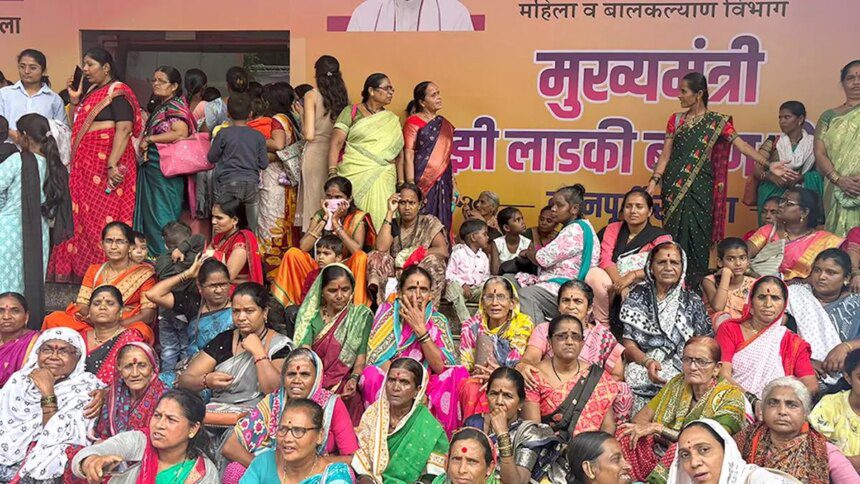The Maharashtra government is poised to reassess the beneficiaries of the Ladki Bahin Scheme, a welfare program introduced prior to the recent state elections. Women currently receiving ₹1,500 per month under this initiative will now be required to meet specific eligibility criteria in order to continue accessing these funds. This decision arises from the growing financial pressure on the state’s finances due to the scheme.
Launched by the BJP-led coalition government as part of a comprehensive welfare package, the Ladki Bahin Scheme was highlighted during the last budget announcement by Finance Minister Ajit Pawar, which totaled ₹6,12,293 crore. Initiatives in this budget included provisions for three free LPG cylinders annually for below-poverty-line (BPL) families, complimentary electricity for farmers, and the monthly stipend for eligible women.
The Ladki Bahin Scheme has been a key element of the BJP alliance’s strategy during the state elections, playing a significant role in the coalition’s success at the polls. With approximately 2.47 crore women benefiting from this scheme, it has been central to the government’s outreach efforts. However, maintaining this program has emerged as a financial challenge, estimated to cost the state treasury around ₹46,000 crore annually. Consequently, the government is now moving to reduce the number of beneficiaries by implementing stricter eligibility standards.
Currently, the scheme provides ₹1,500 monthly to women aged between 21 and 65. During the election campaign, the former Chief Minister Eknath Shinde promised to increase this amount to ₹3,000 per month if the government remained in power. While the scheme has undeniably contributed to the government’s electoral achievements, experts are expressing concerns regarding its sustainability in the long run.
In response to these worries, the government has initiated a review of the beneficiary list to ensure that only qualified women continue to receive assistance. Women and Child Welfare Minister Aditi Tatkare has confirmed that this review process is underway following reports of ineligible individuals receiving benefits.
While tightening the eligibility requirements could alleviate some of the financial burdens on the state budget, it also carries the risk of disappointing voters who relied on the welfare commitments made by the ruling coalition.










